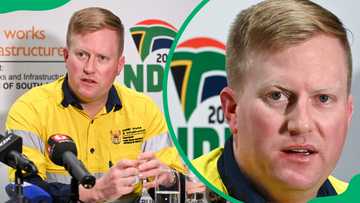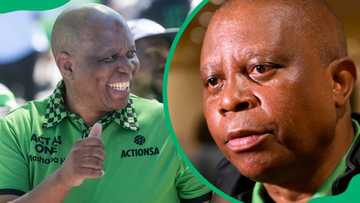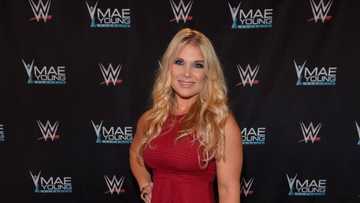Who is Helen Zille? Key facts about the South African politician
Helen Zille is a prominent South African politician who is the former leader and current Federal Council Chairperson of the Democratic Alliance (DA). The DA is the country's official opposition to the ruling African National Congress (ANC) party, which Helen spearheaded for years. What else do we know about her career in politics and personal life?
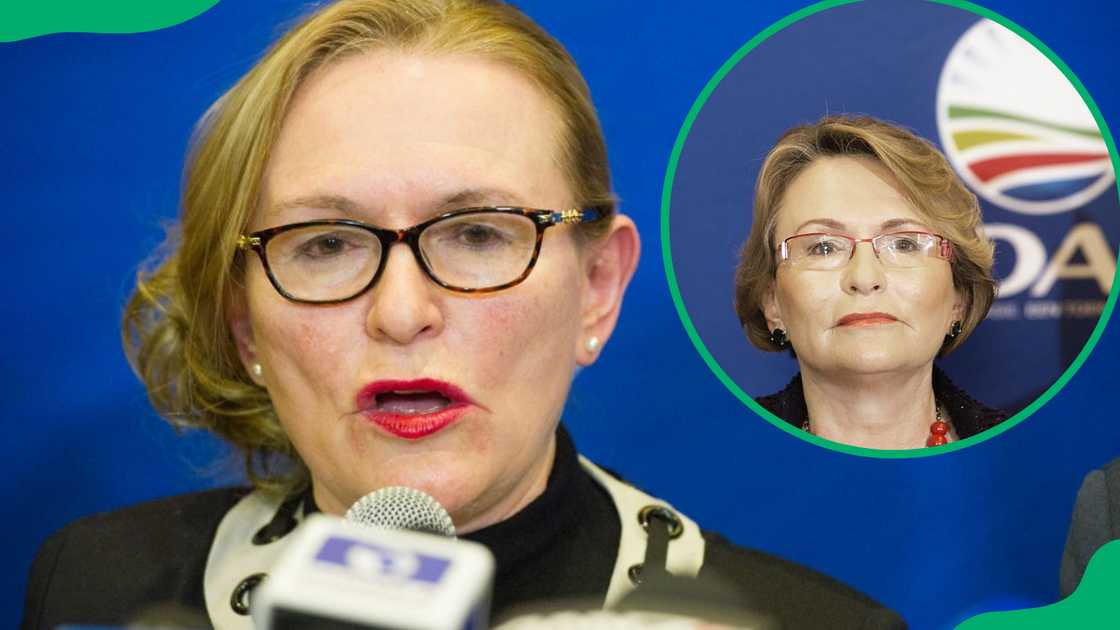
Source: Getty Images
TABLE OF CONTENTS
Helen became a member of the Western Cape Provincial Legislature in 1999, being appointed as MEC for Education. She became a member of Parliament with the DA in 2004 and became the political party's leader from 2007 until 2015 when Helen said she would not stand for re-election.
Helen Zille's profile summary
Full name | Otta Helene Maree (née Zille) |
Nickname | Helen Zille |
Date of birth | March 9, 1951 |
Age | 73 years old (2025) |
Birthplace | Hillbrow, Johannesburg, Gauteng |
Current residence | Between Cape Town and Johannesburg |
Current nationality | South African |
Marital status | Married to Johann Maree (1982) |
Ethnicity | White |
Gender | Female |
Hair colour | Dark blonde |
Eye colour | Dark brown |
Children | Paul and Thomas Maree |
Profession | Politician and former journalist |
Education | University of the Witwatersrand (Wits) St Mary's School |
Native language | Fluent in English, Afrikaans, Xhosa, and German |
Social media profiles |
|
Helen Zille's age and background
Helen Zille (73 as of January 2025) was born on 9 March 1951 in Hillbrow, Johannesburg, Gauteng. Her parents were refugees who escaped Germany during Hitler's reign to provide their children with a better quality of life. They initially immigrated to England before settling in South Africa.
Helen Zille's education
Helen attended St Mary's School in Waverley. She then attended the University of the Witwatersrand (Wits), where she obtained a Bachelor of Arts degree.
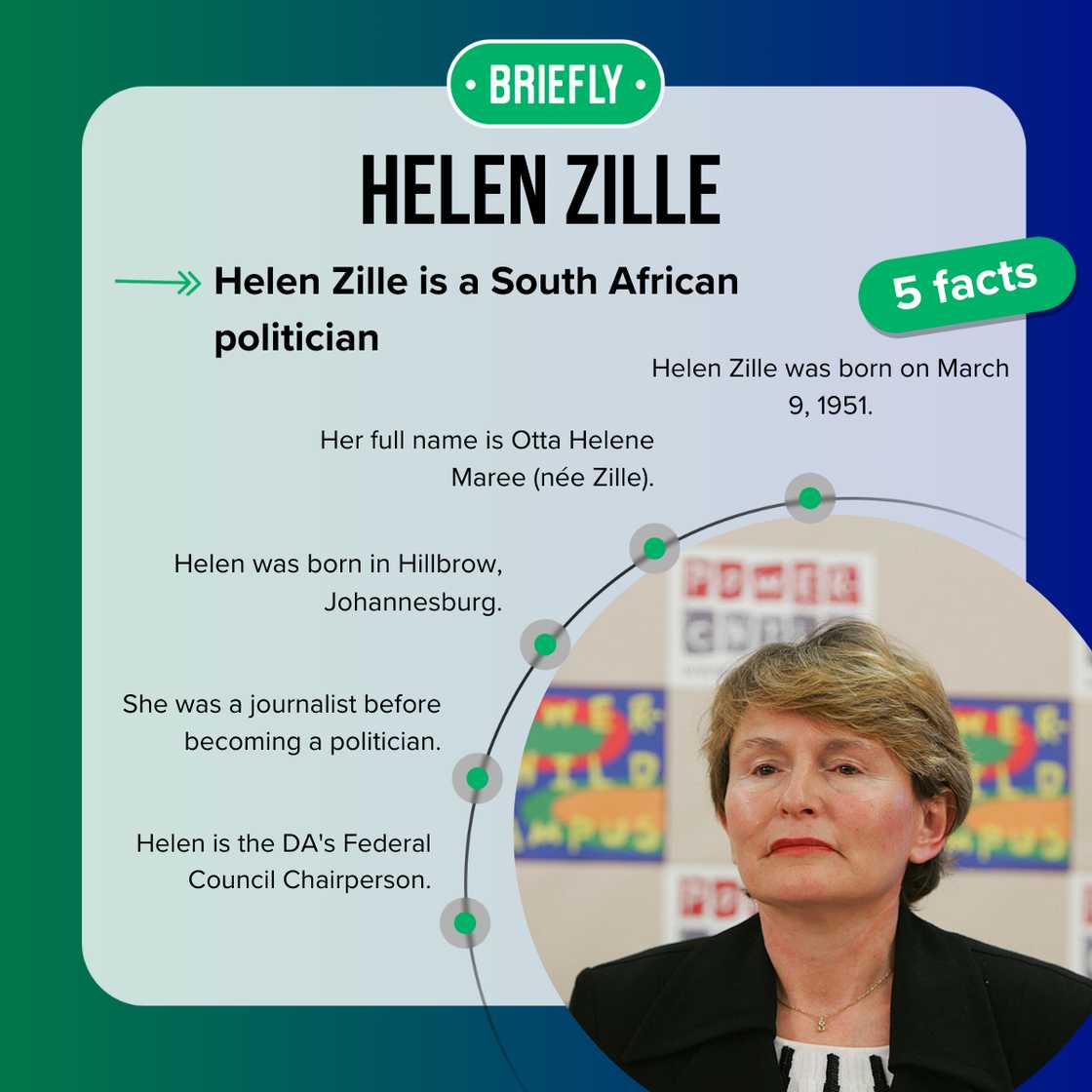
Source: Original
Where does Helen Zille live?
Helen divides her time between Cape Town and Johannesburg. It was last reported that her primary home is Leeuwenhof, a historic residence where many former Western Cape premiers have lived.
Helen was quoted by IOL when she first moved there in 2009 as saying:
'This is state heritage, and we are temporary sojourners here. We will do our very best to look after the place and hand it on in mint condition. It's a bit nerve-racking when you pick up a glass and are not sure if it came with Simon van der Stel or whoever.'
Helen Zille's family
The influential South African figure has been married to Johann Maree since 1982. Johann is a professor specialising in sociology. He remains out of the public eye, and there is limited information on Helen Zille's husband's life otherwise.
Children
Helen Zille's children include two sons, Paul and Thomas Maree. Paul was born in 1984 and was 41 at the time of writing. According to his X (Twitter) account, he is a mathematics teacher and co-founder of Paper Video, the country's biggest collection of exam paper-based video lessons and multiple-choice questions.
Thomas was born in 1989 and was 36 at the time of writing. His LinkedIn and X (Twitter) profiles state that he is a digital marketing manager at Mama Money. Thomas previously worked with Showmax, CNBC Africa, and Forbes Africa.
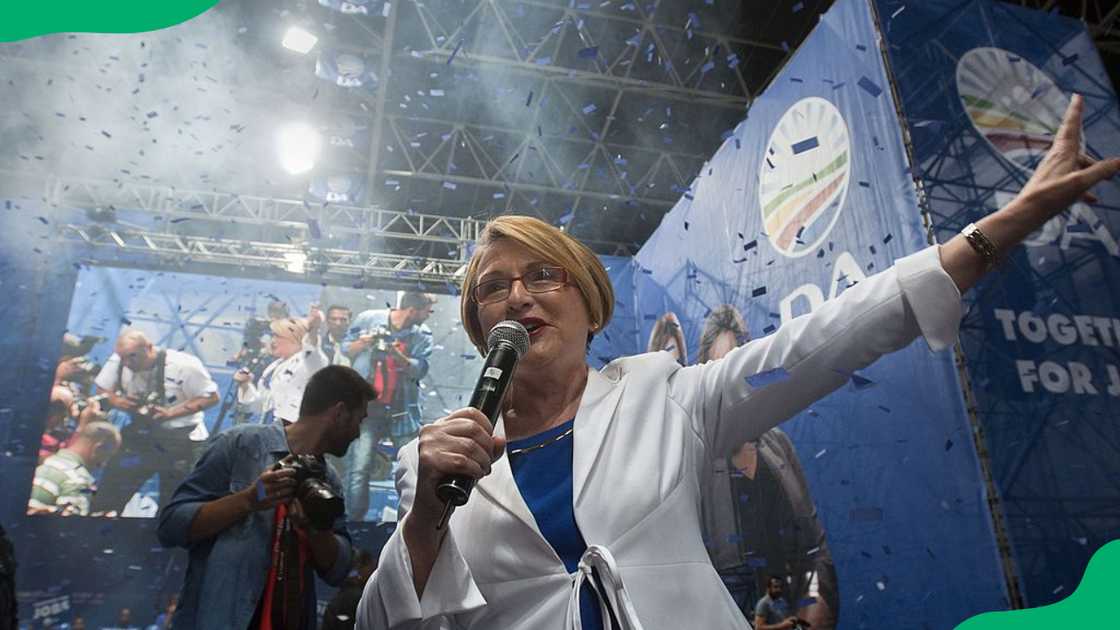
Source: Getty Images
What role did Helen Zille play in the Apartheid movement?
What did Helen Zille do for South Africa? During her time as a journalist at the height of the Apartheid struggle in the late 1970s, Helen was one of the journalists who exposed the cover-up regarding the death of Steve Biko.
She was working for the Rand Daily Mail at the time. Helen also worked with the Black Sash and other pro-democracy groups aimed at abolishing Apartheid during the 1980s.
Why is Helen Zille a positive role model?
Helen Zille's involvement in exposing the atrocities that occurred during the Apartheid era made her a positive role model for all South Africans, displayed by her fellow politicians' decision to place her in positions of power in the DA.
Controversy regarding colonialism
However, Helen's political career is not without controversy. She stated that the country's colonial past was not all bad on X (then Twitter) in 2017, expressing:
'Our independent judiciary, transport infrastructure, piped water, etc. Would we have had a transition into specialized health care and medication without colonial influence? Just be honest.'
The tweets caused severe backlash, and the DA launched an investigation into whether Helen's statements violated party policy regarding social media usage. Mmusi Maimane stood against her statements, tweeting:
'Let’s make this clear. Colonialism, like apartheid, was a system of oppression and subjugation. It can never be justified.'
Helen apologised for the tweets, expressing that they were not intended to defend colonialism. Despite massive pressure for the DA to implement repercussions, the controversial politician remained the Western Cape premier.
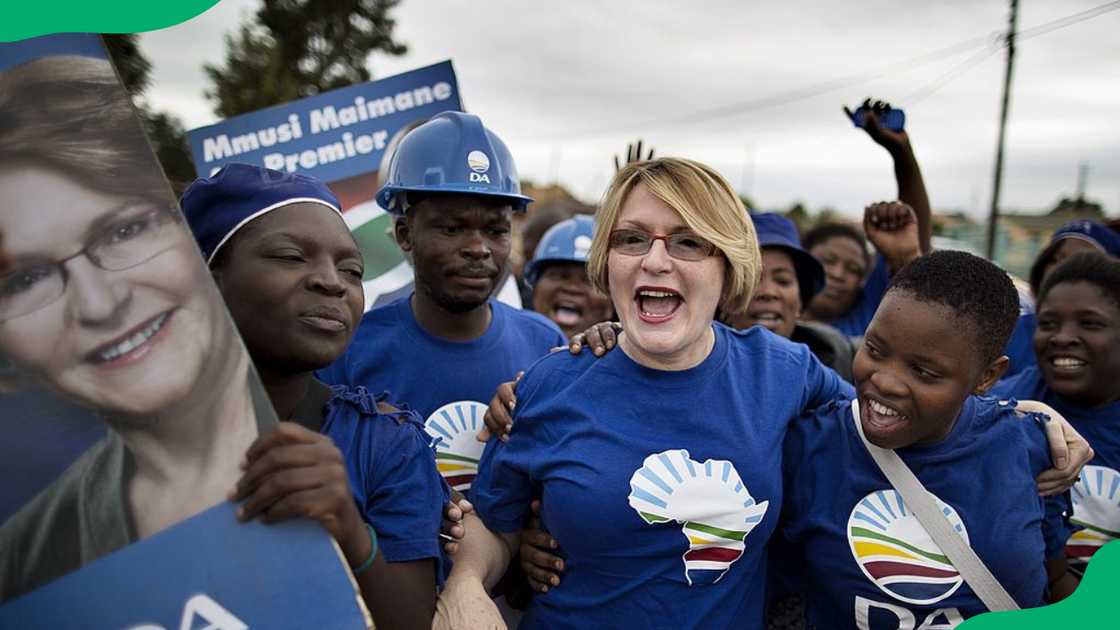
Source: Getty Images
DA's Federal Council Chairperson
In July 2019, Helen joined the South African Institute of Race Relations as a senior policy fellow. She suspended her fellowship in October 2019 and declared her candidacy as the DA's Federal Council Chairperson. She won the election, and it is Helen Zille's current position as of 2025.
Helen Zille's income
Helen Zille's net worth has not been made public, but her salary was last reported by News24 in 2011 as R1.7 million annually. At the time, she had a net allowance of R10,000.00 monthly.
The same News24 article reported that despite Helen Zille's substantial salary, the local politician lives modestly. She was quoted saying:
'In every possible way for the government and the party: I travel economy class, rent D class vehicles and use a 2003 vehicle from the government garage pool as my official car.'
Ups and downs have marred Helen Zille's life and career, and her successes have not been without controversy. However, she played a role in exposing the injustices of Apartheid and is one of South Africa's most prominent political figures.
READ ALSO: Danny Jordaan's biography: All we know about the controversial president of SAFA
Briefly.co.za wrote a biography on another controversial South African figure, Danny Jordaan. Danny is the president of the South African Football Association (SAFA), who was a lecturer, anti-racism activist, and ANC politician before taking on the role of SAFA president.
What do we know about Danny's personal life, career moves, and controversies? Read on for everything we know about the controversial public figure.
Source: Briefly News

